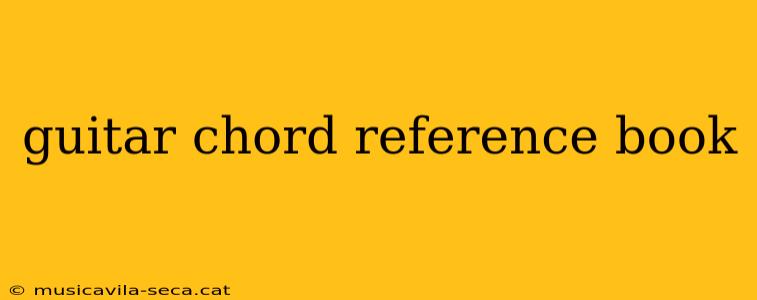Learning to play the guitar can be a thrilling yet challenging journey. One of the most essential tools for any guitarist—whether you’re a beginner or an advanced player—is a reliable guitar chord reference book. But what should you look for in such a book? In this article, we will explore the features of a great guitar chord reference book, how to use it effectively, and additional tips to enhance your playing.
Why a Guitar Chord Reference Book?
A guitar chord reference book serves as a comprehensive guide that provides you with various chord shapes, finger positions, and their corresponding tablature. With this resource, you can quickly learn and practice chords, making it easier to play your favorite songs or even compose your own music.
Key Features of a Quality Guitar Chord Reference Book
1. Extensive Chord Library
A good chord reference book should cover all the essential major, minor, and diminished chords. Additionally, it should provide variations like seventh chords, extended chords, and altered chords for more advanced players.
2. Clear Diagrams and Photos
Chord diagrams should be easy to read, showing finger placements and string numbers clearly. Pictures can also help beginners better visualize how to position their fingers correctly.
3. Example Songs
A book that includes songs that utilize the chords can motivate you to practice. Knowing the chords isn't enough; you'll want to apply them in a musical context.
4. Practice Exercises
Including exercises that focus on chord transitions can greatly benefit your learning experience. This practice is essential for smooth playing in songs.
5. Bonus Sections
Some books provide additional materials such as tips on strumming patterns, barre chords, or scale studies. These can provide a well-rounded learning experience.
How to Use Your Guitar Chord Reference Book Effectively
To maximize your learning with a chord reference book, follow these steps:
1. Start with the Basics
Focus on learning a few basic chords first—like C, G, D, A, and E. Practice transitioning between these chords until you feel comfortable.
2. Learn Chord Progressions
Once you know a handful of chords, try learning simple progressions, such as G-C-D or C-Am-F-G. This can help you understand how chords relate to one another.
3. Explore Varied Finger Positions
Many chords have different voicings. Experiment with different finger placements to find what sounds best for you.
4. Utilize the Example Songs
Choose a couple of your favorite songs that incorporate the chords you’re learning. This will not only boost your confidence but also make practice more enjoyable.
5. Set a Regular Practice Schedule
Consistency is key. Aim for a daily practice routine where you can focus on different chords and exercises from the book.
Additional Tips to Enhance Your Chord Learning
Explore Online Resources
While a chord book is invaluable, combining it with online resources such as video tutorials can provide additional clarity. Websites like YouTube offer countless videos demonstrating chord formations and transitions.
Use a Guitar Tuner
Ensure your guitar is tuned correctly to avoid frustration. An out-of-tune guitar can distort the sound and affect your perception of whether you’re playing a chord correctly.
Join a Community
Consider joining online guitar communities or forums. Engaging with fellow learners can provide motivation, tips, and feedback that can be incredibly helpful.
Conclusion
A guitar chord reference book is an essential tool for any guitarist. With extensive chord libraries, clear diagrams, and additional learning resources, you can greatly enhance your playing ability. Remember to practice consistently, learn progressions, and make the most out of the included example songs.
By integrating traditional learning with modern resources and community engagement, you will not only master chords but also find joy in your musical journey. So grab your guitar, find that perfect chord reference book, and get started on your path to becoming an accomplished guitarist!
Attribution: This content is inspired by various questions and answers from WikiHow regarding music education, chord learning, and guitar practice methods.
In this article, we focused on creating an informative piece about a guitar chord reference book while providing unique analysis and practical examples to enhance the reader's learning experience.
